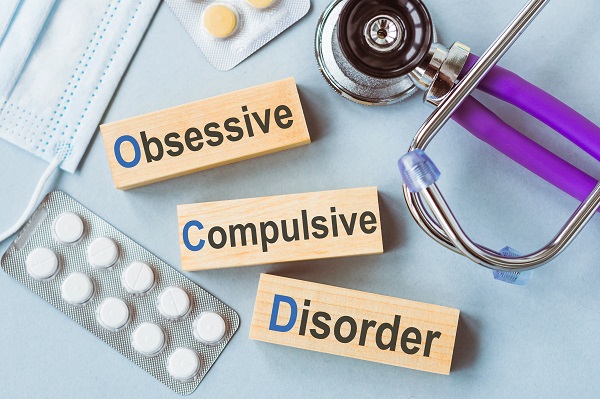If you are a teenager who is struggling with OCD, you are not alone. OCD affects people of all ages, and there is help available. In this blog post, we will discuss what OCD is, the signs that you may need treatment, and how to get help. We will also talk about the different types of OCD treatment for teens and how to choose the right one for you. So if you are feeling overwhelmed by your OCD symptoms, keep reading.
Contents
What Is OCD In Teens?
 OCD in teens is defined as an anxiety disorder that is characterized by obsessions and compulsions. Obsessions are repetitive, intrusive, and unwanted thoughts, images, or urges that cause distress. Compulsions are repetitive behaviors or mental acts that a person feels compelled to do to reduce their anxiety. OCD can impact any area of a teen’s life, including school, relationships, and extracurricular activities.
OCD in teens is defined as an anxiety disorder that is characterized by obsessions and compulsions. Obsessions are repetitive, intrusive, and unwanted thoughts, images, or urges that cause distress. Compulsions are repetitive behaviors or mental acts that a person feels compelled to do to reduce their anxiety. OCD can impact any area of a teen’s life, including school, relationships, and extracurricular activities.
Several different types of OCD can affect teens. Some common obsessions include:
-Fear of contamination or dirt
-Intrusive thoughts about harming oneself or others
-Excessive focus on symmetry or orderliness
-Preoccupation with religious themes or moral issues
-Unwanted sexual thoughts or images
Compulsions can include:
-Excessive handwashing or bathing
-Checking things excessively (e.g., locks, appliances)
-Counting, tapping or repeating certain words or phrases
-Arranging objects in a specific order or pattern
-Hoarding objects
OCD can be a very debilitating disorder, but there is hope. With treatment, teens can learn to manage their OCD and live happy and productive lives. If you think your teen may have OCD, it’s important to seek professional help. A mental health professional can assess your teen’s symptoms and develop a treatment plan that is tailored to their needs. Treatment for OCD usually includes some combination of medication and cognitive behavioral therapy (CBT). CBT is a type of therapy that helps people to change the way they think and behave.
Negative Impacts of OCD In Teens

There are many negative impacts of OCD that can occur in teens. These include:
Difficulty concentrating in school
One of the most common symptoms of OCD is intrusive thoughts. These are unwanted, often distressing thoughts that can cause a great deal of anxiety. This can lead to difficulty concentrating in school and poor academic performance.
Poor grades are often a consequence of the symptoms of OCD. When intrusive thoughts and avoidance interfere with concentration and focus, it can lead to poor academic performance.
Another common symptom of OCD is avoidance. Teens with OCD may avoid social activities or situations that trigger their anxiety. This can make it difficult to form and maintain friendships and other relationships.
Because of the negative impacts, OCD can have on social interactions, teens with OCD may start to withdraw from family and friends. This isolation can compound the effects of the disorder and make it even harder to seek treatment.
Trouble at home
The impacts of OCD can also extend to home life. Teens with OCD may have difficulty completing chores or participating in family activities if they are triggered by their disorder. This can lead to conflict with parents and other family members.
Suicidal thoughts or behaviors
Sometimes there are more serious consequences of OCD. Teens with the disorder may have suicidal thoughts or behaviors. This is a sign that they need immediate professional help. Sometimes there can also be self-injurious behaviors, such as cutting or burning.
Constant Worry
One of the most constant negative impacts of OCD is worry. Teens with OCD may worry about their symptoms, the future, or other things in their lives. This worry can be all-consuming and lead to a great deal of distress.
If you are a teen with OCD, it is important to seek professional help. There are effective treatments available that can help you manage your symptoms and improve your quality of life.
OCD Treatment For Teens
 OCD treatment for teens means finding the right help and support to overcome OCD. It can be difficult for teens with OCD to ask for help, but it is important to reach out to a trusted adult or mental health professional if you are struggling. Treating a mental health condition like OCD can be difficult, but there are many effective treatments available. If you or someone you know is struggling with OCD, there are resources and support available to help.
OCD treatment for teens means finding the right help and support to overcome OCD. It can be difficult for teens with OCD to ask for help, but it is important to reach out to a trusted adult or mental health professional if you are struggling. Treating a mental health condition like OCD can be difficult, but there are many effective treatments available. If you or someone you know is struggling with OCD, there are resources and support available to help.
There are a few things to keep in mind when seeking treatment for OCD as a teen. First, it is important to find a mental health professional that you trust and feel comfortable with. This may take some time and effort, but it is worth it to find someone who you feel will understand and be able to help you. Secondly, treatment for OCD often includes both medication and therapy. Medication can be an important part of treating OCD, but it is not the only component. Therapy is also an essential part of treatment, and many different types of therapy can be effective for OCD. Finally, it is important to remember that treatment takes time and effort, but it is possible to overcome OCD with the right help.
Different Methods of OCD Treatment For Teens

There are many different methods of OCD treatment for teens. The most common and well-known methods are Cognitive Behavioral Therapy (CBT) and Exposure and Response Prevention (ERP).
These two methods have been proven to be the most effective in treating OCD. However, other methods can be used as well.
Some of the other methods that can be used to treat OCD include:
Medications
Medications are one of the most common methods used to treat OCD. The most common medication used to treat OCD is serotonin reuptake inhibitors (SRIs).
Other medications that are sometimes used to treat OCD include:
- Tricyclic antidepressants
- Monoamine oxidase inhibitors (MAOIs)
- Anti-anxiety medications
- Beta-blockers
Psychotherapy
Psychotherapy is another common method of treatment for OCD. Aso, Psychotherapy can be done in individual or group sessions. The goal of psychotherapy is to help the person with OCD understand their thoughts and feelings and how they can manage them.
Cognitive behavioral therapy (CBT)
Cognitive behavioral therapy is a type of psychotherapy that helps the person with OCD to change their thinking and behavior. CBT is one of the most effective methods of treatment for OCD. Through the working of CBT, people with OCD can understand their thoughts and feelings and how they can change them.
Exposure and response prevention (ERP)
Exposure and response prevention is a type of cognitive behavioral therapy that helps the person with OCD to face their fears and learn how to control their reactions to them. ERP is one of the most effective methods of treatment for OCD. In ERP, the person with OCD is exposed to their fears in a controlled environment and then learns how to control their reactions to them.
Nutritional Therapy
Through nutritional therapy, people with OCD can learn how to change their diet to improve their symptoms. Nutritional therapy is a relatively new method of treatment for OCD, but it has shown to be effective in some cases.
Behavioral Therapy
Behavioral therapy is another method that can be used to treat OCD. Also, Behavioral therapy helps the person with OCD to change their behavior. The goal of behavioral therapy is to help the person with OCD get rid of their unwanted thoughts and behaviors. It also helps the person with OCD to learn new and healthier ways of coping with their thoughts and feelings.
Family-Based Therapy
Family-based therapy is a type of psychotherapy that helps the family of the person with OCD to understand and support the person with OCD. Also, Family-based therapy also helps the family to learn new ways of dealing with the thoughts and behaviors of the person with OCD.
Support groups
Support groups are a great way for people with OCD to connect with others who have similar experiences. Also, Support groups provide a place for people to share their experiences, get support, and learn new information about OCD. These support groups are also a great way for families to connect with other families who have a loved one with OCD.
Self-Care For Teens
 There are many things you can do to help manage OCD in teens. Some things you can do on your own, and others might require some help from a therapist or doctor. Be sure to talk to someone if you are feeling overwhelmed or like you can’t manage your OCD on your own.
There are many things you can do to help manage OCD in teens. Some things you can do on your own, and others might require some help from a therapist or doctor. Be sure to talk to someone if you are feeling overwhelmed or like you can’t manage your OCD on your own.
Here are some self-care tips for managing OCD in your teen years:
– Help Them To Get organized: This one might seem obvious, but it’s important to have a set routine and stick to it as much as possible. This can help reduce anxiety and make it easier to focus on what’s important.
– Help Them To Avoid perfectionism: Trying to be perfect is only going to make your OCD worse. Also, Help them accept that there will be imperfections in life and learn to let go of things that aren’t worth stressing over.
– Help Them Get enough sleep: Sleep is important for everyone, but it’s especially important for teens with OCD. Make sure they get enough rest so that they can manage your symptoms during the day.
– Make Them Eat healthy: Eating a balanced diet can help improve your mood and give you the energy you need to deal with OCD.
– Encourage Exercise: Exercise is a great way to reduce stress and anxiety. It can also help them sleep better at night.
– Help Them Take breaks: When they’re feeling overwhelmed, encourage take a break from whatever it is that’s causing them stress. This might mean taking a few minutes for themself to relax or stepping away from a situation that’s triggering their OCD.
If your teen is struggling with OCD, there are many resources and treatments available to help. Be sure to talk to your doctor or a mental health professional so that you can get the help you need.
Tips To Keep In Mind While Helping In OCD Treatment for Teens

There are many tips to keep in mind while helping in OCD treatment for teens. Some of these are:
Be Patient
One of the main things to keep in mind while helping in OCD treatment for teens is to be patient. This is because it takes time for the person to understand and learn new things. Be patient with them and do not get frustrated if they make mistakes.
Encourage Them
Another tip to keep in mind while helping in OCD treatment for teens is to encourage them. This means that you should praise them when they do something well and help them feel good about themselves. You can also give them positive reinforcement by providing rewards when they reach a goal or accomplish something difficult.
Be Supportive
Another tip to keep in mind while helping in OCD treatment for teens is to be supportive. This means that you should listen to their concerns and offer advice when asked. You should also be available to answer any questions they may have.
Try to Understand
Another tip to keep in mind while helping in OCD treatment for teens is to try to understand. This means that you should not judge them or their condition. Instead, try to learn as much as you can about OCD so that you can better understand what they are going through.
These are just a few of the many tips to keep in mind while helping in OCD treatment for teens. If you keep these things in mind, you will be able to provide better help and support to the teen suffering from OCD.
Conclusion
OCD in teenagers is a serious condition that can have a profound effect on their lives. However, there are treatment options available that can help them manage their OCD and live relatively normal lives. If you think your teen may be suffering from OCD, the first step is to talk to their doctor. From there, you can work with them to find the best treatment option for their individual needs.
With proper treatment, many teens with OCD can lead happy and healthy lives. If you or someone you know is struggling with OCD, don’t hesitate to reach out for help. Some people care and want to see you succeed!
If your teen is dealing with OCD, it’s important to seek professional help as soon as possible. While it may be difficult to talk about, treatment is vital to helping your teen manage their OCD and live a normal life.
If you or someone you know is looking for affordable, effective, and confidential OCD treatment, you can consider contacting Therapy Mantra. We have a team of expert therapists who can help you to overcome your OCD and live a life that is free from anxiety and fear. Contact us today to book an online therapy session or download our free OCD treatment app on Android or iOS for more information.


